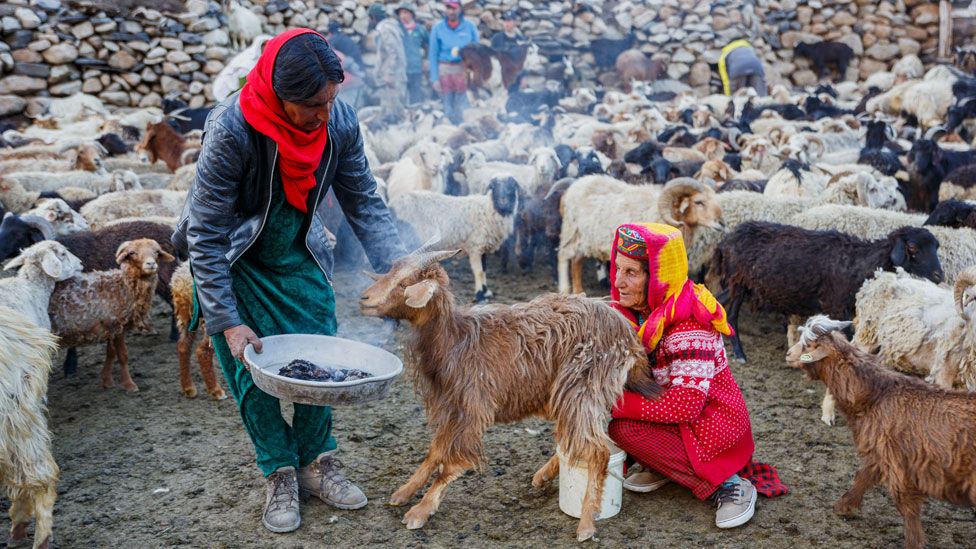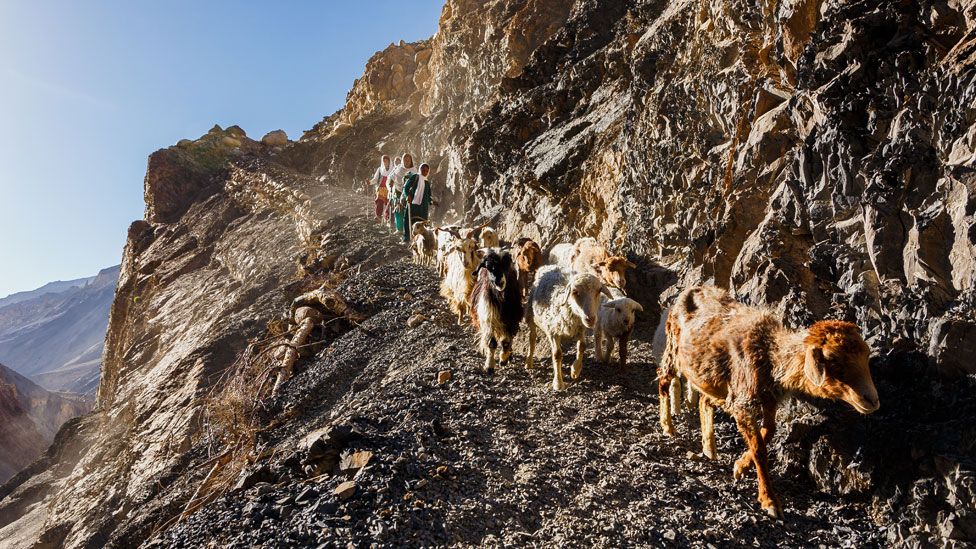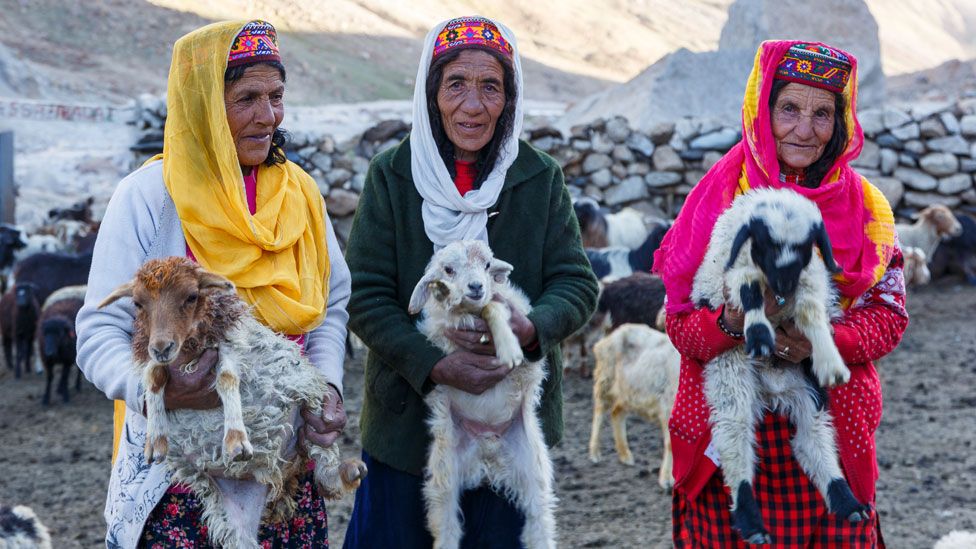- The dwindling community of Pakistan’s Wakhi Shepherdesses embarks on one of their final journeys to remote mountain pastures, marking the end of a centuries-old tradition.
- These resilient women, who have been the economic backbone of their community, used revenue from their activities such as sheep-shearing and dairy production to fund essential needs like healthcare and education, as well as construct the valley’s first road.
- Evolving into successful businesswomen, the shepherdesses relied on barter, exchanging their goods for essential services, and their contributions led to significant improvements in infrastructure, education, and overall quality of life for the community, leaving a lasting legacy.
The Wakhi shepherdesses of Pakistan have trekked distant mountain pastures for generations, guiding their flocks to graze. As their traditional lifestyle fades away, BBC 100 Women accompanied the last 7 Wakhi shepherdesses on one of their final journeys to these majestic highland pastures.
The Vanishing Traditions of Pakistan’s Shepherdesses
These resilient women have been upholding a centuries old tradition which has played a crucial role in reshaping their community. The revenue they’ve generated has contributed to essential needs such as healthcare, education, and the construction of the valley’s inaugural road that helped connect the indigenous tribe to the rest of the world.
However, despite their vital role in the socio-economic fabric of the region, the way of life these Wakhi women have upheld for generations is now at the brink of extinction. Modernisation, changing societal dynamics, and environmental shifts are contributing to the gradual decline of their traditional practices.
In the old times an annual pilgrimage unfolded as dozens of Wakhi shepherdesses undertook a challenging trek amid the formidable Karakoram mountains in the north-eastern peaks of Pakistan. Accompanied by their young children strapped to their backs, these women would entrust the valley farming to the men left behind in Shimshal while they trekked up towards Pamir.

Pamir is almost 5,000m (16,000ft) above sea level, where the lush green pastures unfold and streams of shimmering glacial water carve their way through the landscape, surrounded by rugged snow-capped peaks.
The BBC team set out on a three day trek to Pamir which soon turned into a 5 day journey due to rain, snow and heat. The high altitude was difficult to endure for those who were not from the region. Annar, one of the last few shepherdesses of Wakhi says,
“We’ve walked these lands alongside our mothers and grandmothers. Like us, they were shepherdesses, churning butter, and making yogurt,”
The journey was ofted made bare-foot by these shepherdesses who gave their life to this way of living and earning.
“We used to wear simple robes. We would be shoeless, and walk into the ice like that,
Afroze, who is now 67, was amongst the first woman in the valley to receive a pair of shoes,
“My brother gave me two pairs when I got married, people used to come just to see them. They would often borrow them and my dress for weddings.”
The Wakhi Shepherdesses Turn into Successful Businesswomen
Over the years, the Wakhi shepherdesses evolved into accomplished businesswomen, employing a self-sufficient model of sustenance. Gathering milk from their animals for yogurt and dairy products, and crafting items from sheared sheep, they established a thriving trade. Barter was the cornerstone of their economic transactions, as the community exchanged their goods for essential services such as the construction of huts and houses.

Bano recalls,
“We sheared the sheep and made things to take to the village,”
Highlighting the symbiotic relationship that allowed these women to flourish. Afroze, one of the shepherdesses, exemplified this success by constructing two homes—one in Shimshal and another in Gilgit, the nearest city—signifying the tangible rewards of their barter-based economy.
The women then funded the road which joined them to the Karakoram highway, journeys that took days only took few hours. This in turn improved healthcare, education and brought other major changes in their lives. People could now choose to pursue other occupations, study further.
Children of these shephardesses gained access to higher education and are now doctors, engineers, teachers and much more. They thank their mothers for the sacrifices they made to ensure they got the opportunity to a better future.
